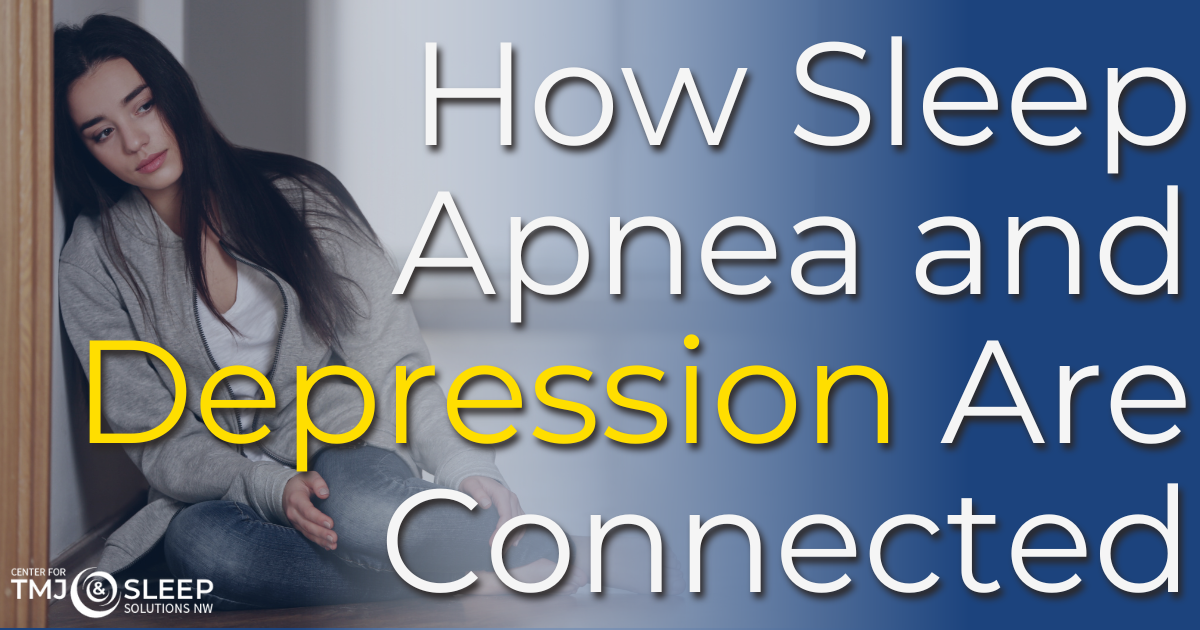
Is Your Sleep Affecting Your Mood? The Link Between Sleep Apnea And Depression
It’s no secret that quality sleep can boost your mood, but what happens when sleep apnea keeps you from getting the rest you need? If you’re feeling unusually tired, irritable, or down, your sleep quality may be playing a bigger role than you realize.
Obstructive sleep apnea (OSA) doesn’t just cause grogginess—it’s also closely linked to depression, with each condition often making the other worse. But there’s hope. Treating sleep apnea can improve sleep quality and emotional well-being, helping you feel more like yourself again.
How Sleep Apnea and Depression Are Connected
The relationship between sleep apnea and depression goes both ways—each condition can increase the risk of the other. Sleep disruptions from OSA can lead to mood changes, brain fog, and irritability, all of which are symptoms of depression. At the same time, depression can make it harder to maintain a healthy lifestyle, potentially worsening sleep apnea symptoms.
People with untreated OSA often report:
- Feeling persistently tired, even after a full night’s sleep
- Difficulty concentrating and remembering things
- Increased anxiety or feelings of sadness
- Waking up feeling short of breath or gasping for air
- Morning headaches and dry mouth
Meanwhile, those with depression may experience:
- Persistent feelings of hopelessness or sadness
- Loss of interest in activities they once enjoyed
- Difficulty falling or staying asleep
- Changes in appetite or weight
- Fatigue and low energy levels
Because the symptoms of both conditions overlap, many people do not realize that sleep apnea is contributing to their depression or vice versa.
How Treating Sleep Apnea Can Improve Mood
Managing sleep apnea can lead to noticeable improvements in mood, energy, and focus. Some studies also suggest that CPAP or oral appliance therapy may help reduce depressive symptoms over time, particularly in patients with more severe sleep apnea (though more research is needed in this area).
Treatment options for sleep apnea include:
- Oral Appliance Therapy: A custom device that repositions the jaw to keep the airway open during sleep
- CPAP Therapy: A machine that provides a continuous flow of air to prevent breathing interruptions
- Lifestyle Adjustments: Weight management, avoiding alcohol before bed, and sleeping in a side position can help reduce symptoms
Our board-certified specialists may recommend additional treatments tailored to help optimize results and improve sleep quality.
Prioritizing Your Sleep and Mental Health
If you’re struggling with low energy, mood changes, or ongoing fatigue, it’s worth exploring whether sleep apnea may be part of the problem. Treating the root cause of poor sleep can help improve mental clarity, emotional stability, and overall well-being. If symptoms persist or worsen despite treatment, reaching out to a mental health professional can provide additional support. Addressing sleep and emotional health together can lead to the best possible results.
For additional support managing your sleep apnea, contact Center for TMJ & Sleep Solutions NW located in Silverdale, Federal Way, or Bellevue, WA to learn more about available treatment options.










